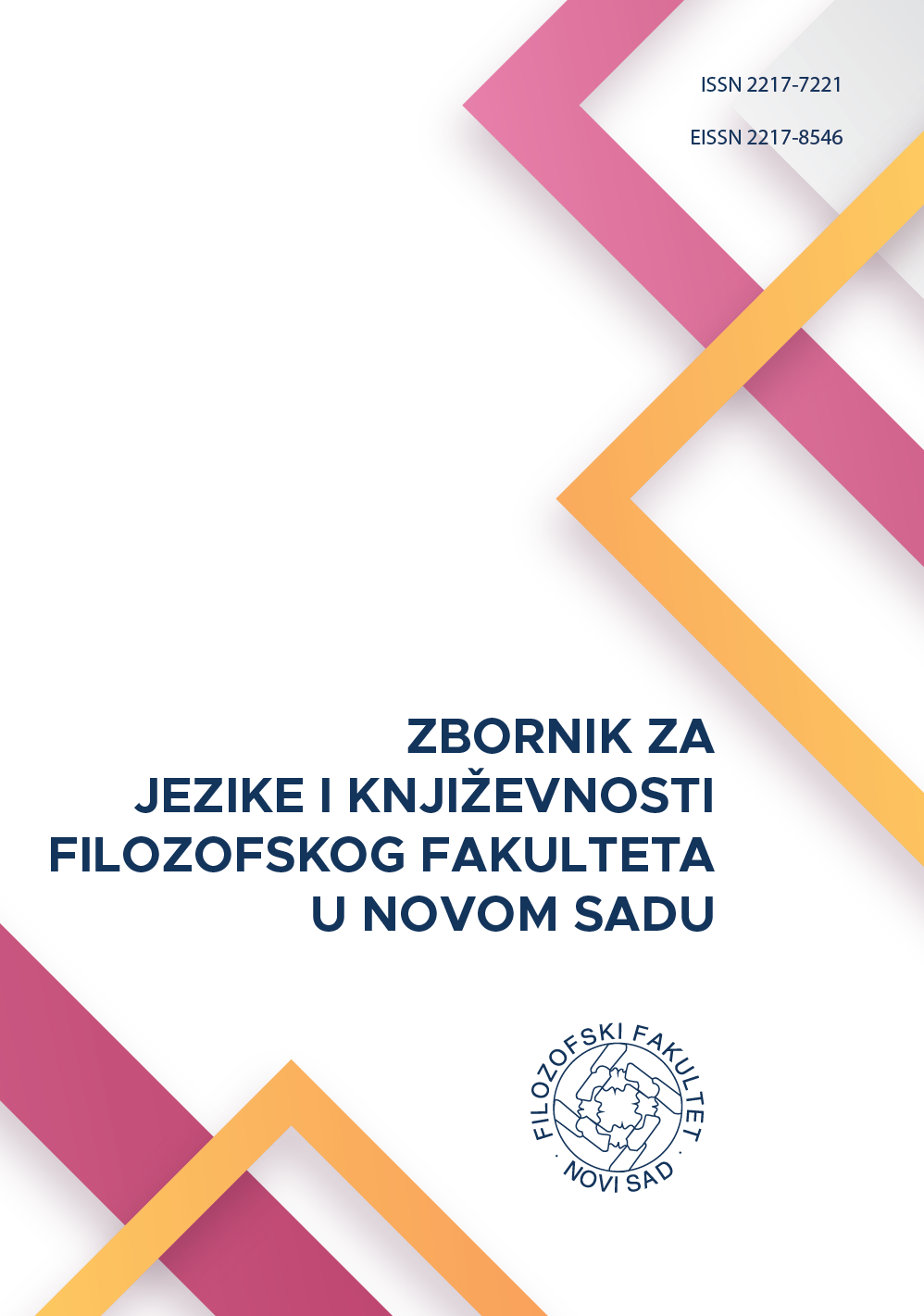POTRAGA ZA DOROM BRUDER I „EMPATIČNA DISTANCA“ PATRIKA MODIJANA
Ključne reči:
Holokaust, kultura sećanja, francuska književnost, Drugi svetski rat, Patrik Modijano, Dora Bruder
Apstrakt
Polazeći od savremenih teorija kulture sećanja na Holokaust i Drugi svetski rat, u ovom radu analiziramo roman Dora Bruder, francuskog pisca Patrika Modijana, pri čemu u obzir uziamamo i širi kontekst politika sećanja u posleratnoj Francuskoj. Na osnovu višeslojne analize teksta ustanovljene su dve suprotstavljene tendencije autora/naratora u njegovoj potrazi za tragovima nastradale jevrejske devojčice Dore Bruder. Sa jedne strane, izražena je autorova potreba za snažnom identifikacijom, a sa druge svest o nemogućnosti ostvarivanja iste. Ovaj književni postupak građenja „empatične distance“ korespondira i sa širim tendencijama „druge generacije“ u umetničkim obradama prošlosti Holokausta.
Reference
Aarons, V. & Berger, L. A. eds. 2017. Third-Generation Holocaust Representation: Trauma, History and Memory, Illinois, Northwestern University Press.
Birnbaum, Pierre. 1996. “Grégoire, Dreyfus, Drancy, and the Rue Copernic: Jews at the Heart of French History”. In: Nora, P. and Kritzmann, D. L. eds. Realms of Memory: The Construction of the French Past, I, New York, Columbia Unversity Press, 379–423.
Golsan, J. Richard. 2006. “The Legacy of World War II in France: Mapping the Discourses of Memory”. In: Lebow, N. E. et al. eds. The Politics of Memory in Postwar Europe, Durham and London, Duke Univesity Press: 73–101.
Green, Mary Jean. 2007. “Pepole Who Leave No Trace: Dora Bruder and the French Immigrant Community”, Studies in 20th & 21th Century Literature 31(2): 434–449.
Hirsch, Marianne. 2012. The Generation of Postmemory: Writing and Visual Culture after the Holocaust, New York, Columbia University Press.
Karpf, Anne. 2013. “Chain of Testimony: The Holocaust Researcher as Surrogate Witness”. In: Chare N. and Williams D. eds. Representing Auschwitz: At the Margins of Testimony, London, Palgrave McMillan: 85–103.
La Capra, Dominck. 2014. Writing History, writing Trauma, Baltimore, Johns Hopkins University Press.
Modijano, Patrik. 2014. Dora Bruder, Novi Sad, Akademska knjiga. (prevela sa francuskog Mirjana Uaknin).
Sanyal, Debaranti. 2009. “The French War” In: MacKay, M. ed. The Cambridge Companion to the Literature of the World War II, Cambridge, Cambridge University Press: 83–97.
Birnbaum, Pierre. 1996. “Grégoire, Dreyfus, Drancy, and the Rue Copernic: Jews at the Heart of French History”. In: Nora, P. and Kritzmann, D. L. eds. Realms of Memory: The Construction of the French Past, I, New York, Columbia Unversity Press, 379–423.
Golsan, J. Richard. 2006. “The Legacy of World War II in France: Mapping the Discourses of Memory”. In: Lebow, N. E. et al. eds. The Politics of Memory in Postwar Europe, Durham and London, Duke Univesity Press: 73–101.
Green, Mary Jean. 2007. “Pepole Who Leave No Trace: Dora Bruder and the French Immigrant Community”, Studies in 20th & 21th Century Literature 31(2): 434–449.
Hirsch, Marianne. 2012. The Generation of Postmemory: Writing and Visual Culture after the Holocaust, New York, Columbia University Press.
Karpf, Anne. 2013. “Chain of Testimony: The Holocaust Researcher as Surrogate Witness”. In: Chare N. and Williams D. eds. Representing Auschwitz: At the Margins of Testimony, London, Palgrave McMillan: 85–103.
La Capra, Dominck. 2014. Writing History, writing Trauma, Baltimore, Johns Hopkins University Press.
Modijano, Patrik. 2014. Dora Bruder, Novi Sad, Akademska knjiga. (prevela sa francuskog Mirjana Uaknin).
Sanyal, Debaranti. 2009. “The French War” In: MacKay, M. ed. The Cambridge Companion to the Literature of the World War II, Cambridge, Cambridge University Press: 83–97.




